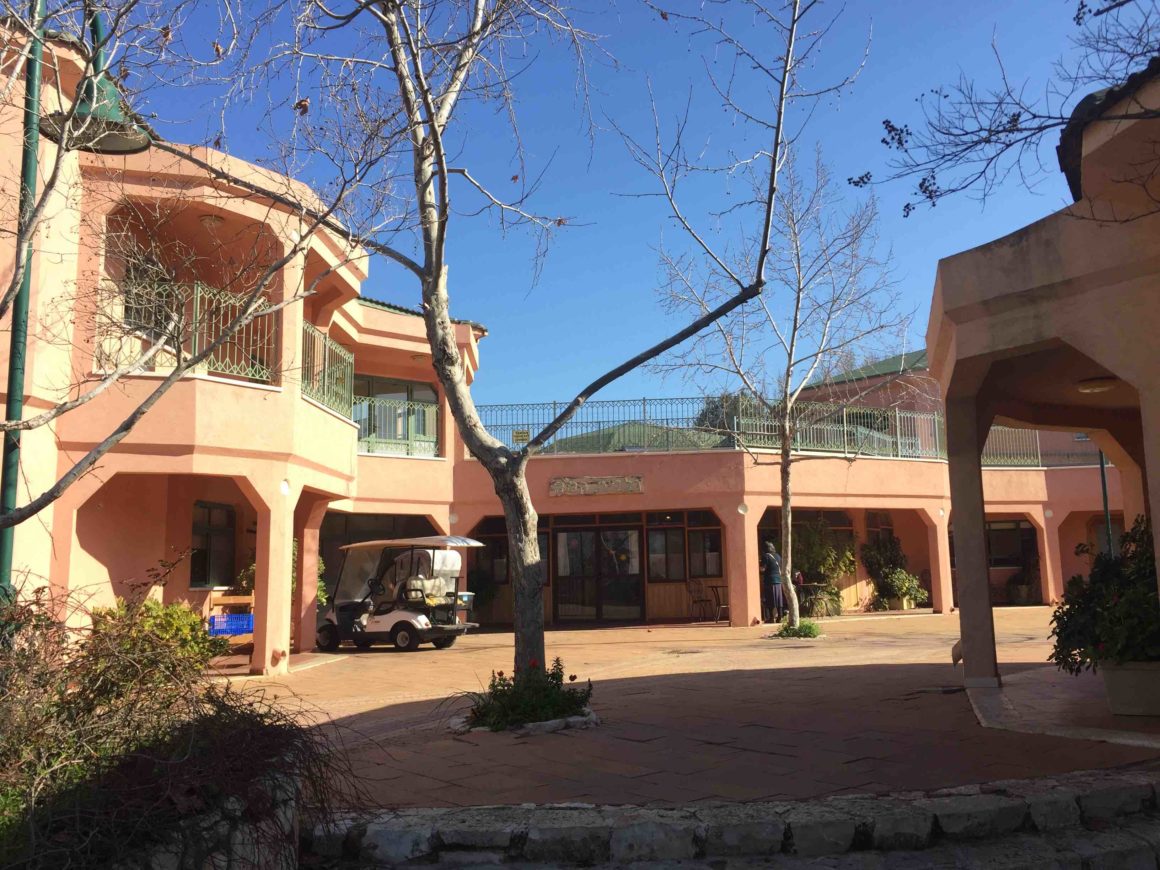Impressions from Israel
During my first visit to Israel at the beginning of March I was able to experience the incredibly complex areas of tension in this country very closely.
The social and political structures can be felt in a complex web which in some places is stronger and in others weaker in the reality of life in the four anthroposophical curative education and social therapy centres.
The beginning was very pleasant, because on the first day, the four institutions took my visit as an opportunity to gather around a round table after many years. There were representatives from
- Kibbutz Harduf: Tuvia, the place for children and young people with challenging behaviour, and Beit Elisha, social therapy
- Beit Uri, a neighbouring town where a large community for adult people was established many years ago
- Quar Rafael, a Camphill-inspired community with a long tradition in the south of the country, and theoretically a colleague from the young curative education school in Jerusalem “Dvir”. Unfortunately she had to turn back on her way to the north and I met her two days later on site in Jerusalem.
The underlying mood of this round was that people were amazed to find out what the challenges of each initiative were. For the complexities due to financing, religious affiliation, in the country or in the city, questions of inclusion etc. are and will be answered very differently.
The topics that emerged very clearly together can be read below and I would be pleased if we as the international community could also show our support to this country by integrating it into our network in a lively way.
The colleagues would like to have a format for continuing training for all institutions. My suggestion was to develop a kind of travelling academy in which, in a reliable format of e.g. four times a year on 2–3 days, topics are taken up with guest lecturers. In the current year, peer groups could be formed on the spot, which, in the spirit of collegial consultation, will continue to consult, train and deepen their knowledge together on specific topics.
Topics are:
- Partnerships: How can opportunities for diverse living partnerships of people with assistance needs be designed in social therapy, taking into account religious needs? The most unusual example for me on the trip was in a religious (Jewish) Kibbutz (Merav), which in cooperation with Beit Uri has set up two residential groups for adult people with assistance needs: The two living groups are 500 m away and are separated by gender, because this follows the Jewish tradition.
- Sexuality: The topic partly follows the question of how to shape partnerships, but also affects young people and parents.
- Double diagnosis: In the small curative education school in Jerusalem 90% of the children with very complex disabilities are together every day. There is no training for these tasks in Israel. A good developmental support for the children cannot only be provided by therapists, but also requires a great deal of knowledge on the part of the teachers and carers.
- Facilitated communication: Until a few years ago, people with various disabilities were accommodated in specialised places among themselves. Non-speaking people, especially from the autism spectrum, were not present in Harduf, for example. This is now gradually changing and therefore it is necessary to respond to this new type of requirements in the facilities.
- Spiritual work: Since there is no Anthroposophical Society in Israel, the institutions are very much dependent on their own resources and do not enjoy the support of active collaboration in boards which take place in branches or in offerings of an Anthroposophical Society. As a result, the awareness of this source of power is very low.
- Young employees: In Harduf in particular there are many young staff members who would be very happy to receive specific anthroposophical training in curative education and social therapy. If this could be developed, it would attract employees in the long term.
- Autism developed from anthroposophical anthropology interests the colleagues very much.
- Overall, they would like to have a medical doctor with psychiatric and anthroposophical knowledge in the country. It was asked whether there was not someone in retirement who could look forward to a year abroad!
I experienced very exciting days in Israel, with a lot of joy, with committed employees with many questions and courage to tackle new tasks and look into a changing future.
In the course of the year, this group of institution representatives will select a person who would like to participate in the trainers’ conference in Kassel in the future and nominate a new delegate for the council, as Yftach Ben Sha from Quar Rafael would like to resign after more than 10 years.
Unfortunately I was not able to visit this institution Quar Rafael because of the regulations of the health department for German citizens – in times of the Corona virus I had to stop the journey on the 5th day.
I would be pleased if I could arouse your curiosity for this special country and would welcome it if you feel addressed to contribute to one of the listed topics. Please feel free to contact me.
Sonja Zausch

